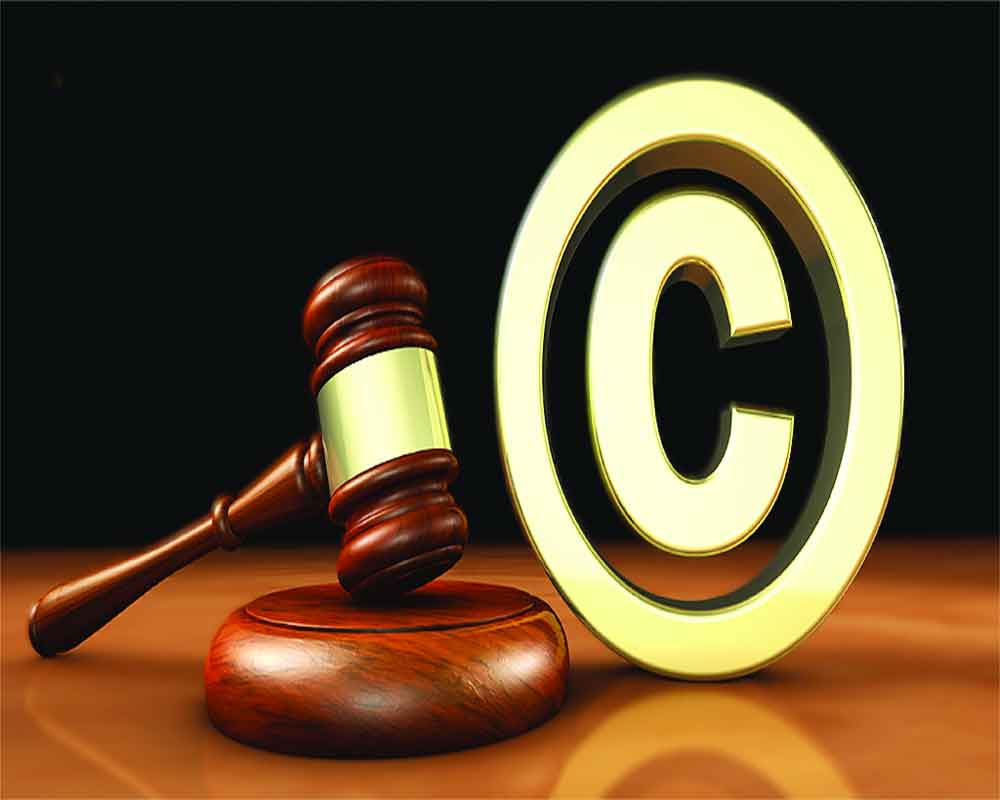Policymakers face the formidable challenge of revising copyright laws effectively to tackle the complexities presented by AI
People often say that in this digital world, nothing remains secret. Even personal details can be accessed through the Internet. The quantum of information on the Internet is so vast that, despite the security measures, it is not cent per cent foolproof. In such a scenario, one must critically examine copyright’s relevance in the digital world. Copyright rules and laws traditionally protect every creation or innovation, so the original creator retains credit for their work and is aptly rewarded through monetary benefits.
When an author creates a book, they automatically own the copyright. This gives them the exclusive right to reproduce, distribute, perform, and display the book and create derivative works based on it. In most countries, copyright protection for a book typically lasts for the author’s lifetime plus 50-70 years. During this time, others generally cannot reproduce or distribute the book without the author’s permission unless their use falls under a specific exception, such as fair use or fair dealing.
Within the realm of music, this signifies that the individual responsible for creating a song, the writer of the lyrics, the composer, or the performer, possesses the sole entitlement to utilise, disseminate, and capitalise on that song. In India, organisations such as the Indian Performing Right Society (IPRS) and Phonographic Performance Limited (PPL) administer the rights of copyright owners and collect royalties on their behalf for the public performance and broadcast of songs. Copyright also extends to research works, protecting and monetising one’s creations through patents.
Unfortunately, journal publishers own the copyright for research publications. The publishers amass massive amounts through subscriptions and advertisements without providing any monetary benefit to the authors. Most of the reputed journals do peer reviews free of cost, take processing charges from authors, and get subscription fees and advertisements as revenue. What does the poor researcher get? A mental satisfaction of getting published in a high-impact journal? In a way, it’s not fair. A few magazines, of course, practice giving honorariums to the authors.
Despite having stringent copyright rules and regulations, its efficacy is questionable in the rapidly evolving digital age landscape. The widespread availability of digital content and the simplicity of sharing information on the Internet have presented unprecedented difficulties and intricacies for existing copyright rules. Today, one can easily copy content from online resources without crediting the original creator. Content available on social media sites, including photographs, is widely reproduced. Identifying the original content creator, be it literary or artistic works, is often difficult. Even stringent protective measures like user authentication mechanisms such as passwords, multi-factor authentication (MFA), and role-based access controls (RBAC) to restrict access to authorised individuals or groups and watermarking techniques often fail to prevent the infringement of copyrights.
The advent of AI in digital platforms has complicated the situation. As AI systems become more sophisticated, their ability to create, replicate, and modify content raises intricate legal questions regarding ownership and authorship. Though AI can do any role, it lacks the human touch in its creation that connects human minds.
While individuals are accountable for creating and instructing these algorithms, the AI system autonomously produces the outcome, erasing the distinction between human and machine authorship. The current necessity lies in incorporating ethical, cultural, and economic considerations while crafting a new policy that effectively balances the rights of creators and AI developers.
(The writer is an adjunct faculty at the National Institute of Advanced Studies, Bengaluru; views are personal)


























